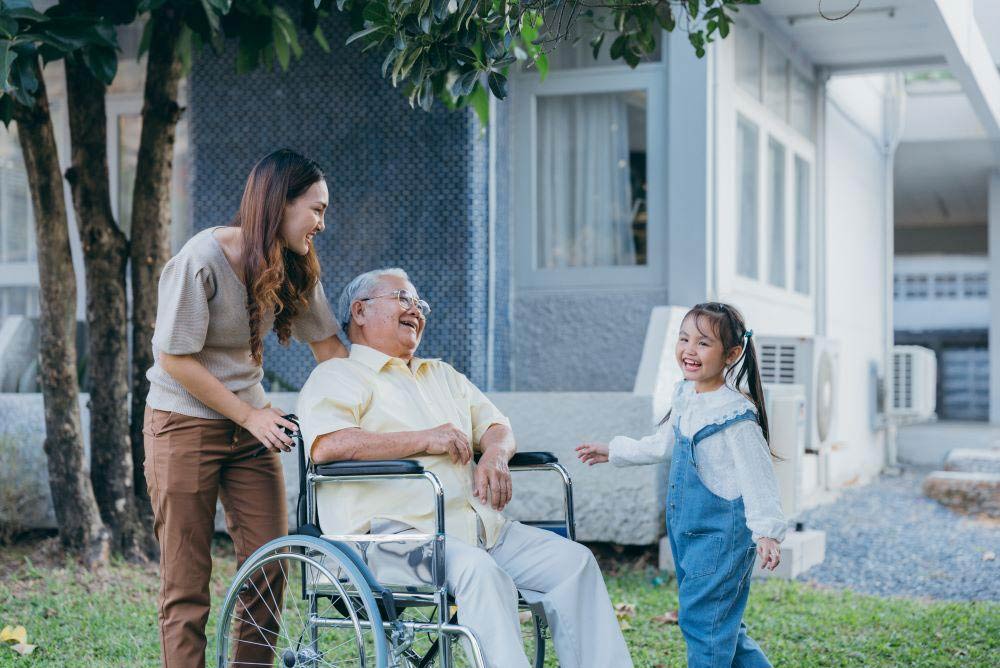Singapore, known for its forward-thinking policies, is now leveraging artificial intelligence (AI) to address the growing challenges of its rapidly aging population. By 2030, an estimated 25% of Singapore’s population will be 65 or older, a steep increase from just 10% in 2010. This demographic shift is creating significant pressure on the healthcare system and workforce, prompting the city-state to explore innovative solutions.
AI: A “Huge” Role in Elderly Care
Artificial intelligence is poised to play a pivotal role in elderly care, according to Chuan De Foo, a research fellow at the Saw Swee Hock School of Public Health. AI is already being used in various capacities, such as detecting falls through listening devices, managing hospital administrative tasks like bed availability, and supporting teleconsultations for tech-savvy seniors.
Foo emphasized the importance of AI in addressing non-acute conditions and enabling earlier disease detection. He described AI as a “pivotal force” that could transform healthcare delivery, stating that societies worldwide are “dismally unprepared” for the challenges of aging populations. AI-powered technologies could help fill the care gap by assisting clinicians and caregivers in offering more efficient and targeted care.
“High Tech, but High Touch” Approach
Despite the benefits of AI, experts stress the importance of balancing technology with human caregiving. Dr. Han Ei Chew, a research fellow at the Lee Kuan Yew School of Public Policy, advocates for a “high tech, but high touch” approach. Chew explained that while AI tools can empower seniors to stay independent and “age in place,” human caregivers remain essential for emotional and physical support.
One of the key technologies being deployed in Singapore is home monitoring systems, which can detect falls and alert family members or emergency services. However, Chew highlighted the importance of giving seniors control over these technologies. “The AI should empower the seniors and not strip them of control. They still need to have the choice to opt in, set boundaries, and, more importantly, to turn it off when they want,” he said.
Global Trends in AI for Elderly Care
Singapore isn’t alone in its adoption of AI for elderly care. In the United States, companies like Sensi.AI are developing “care co-pilot” systems that monitor elderly individuals through audio devices. These systems analyze acoustic indicators, such as coughing patterns or footsteps, to detect early signs of health issues like infections or cognitive decline. Sensi.AI’s technology is already being used by tens of thousands of seniors in the U.S., with plans to expand into Asia.
Challenges and Ethical Considerations
While AI offers significant potential, its implementation comes with challenges. Foo warned that over-reliance on AI could lead to poorer health outcomes, particularly for seniors who may struggle with technology. Additionally, the World Health Organization (WHO) has cautioned against “digital ageism,” where biases against older individuals are perpetuated in AI systems. To address this, developers are urged to involve seniors in the design process to ensure technologies meet their needs.
Singapore’s Action Plan for Successful Aging
Singapore’s government has outlined its “Action Plan for Successful Ageing,” which aims to improve the quality of life for seniors. Goals include reaching 550,000 seniors with health and wellness programs and reducing hospital deaths from 61% to 51% between 2023 and 2028. However, experts like Foo caution that the success of these initiatives depends on engaging seniors and incorporating their feedback into the development and deployment of AI tools.
A Balanced Future for Elderly Care
As Singapore navigates the challenges of an aging population, its approach to elderly care underscores the need for balance. AI can serve as an invaluable tool, functioning as an “extra set of eyes, ears, and hands,” but it cannot replace the human touch that caregivers provide. By combining technological innovation with compassionate care, Singapore aims to create a sustainable and inclusive model for elderly healthcare that could serve as a blueprint for other nations facing similar challenges.











